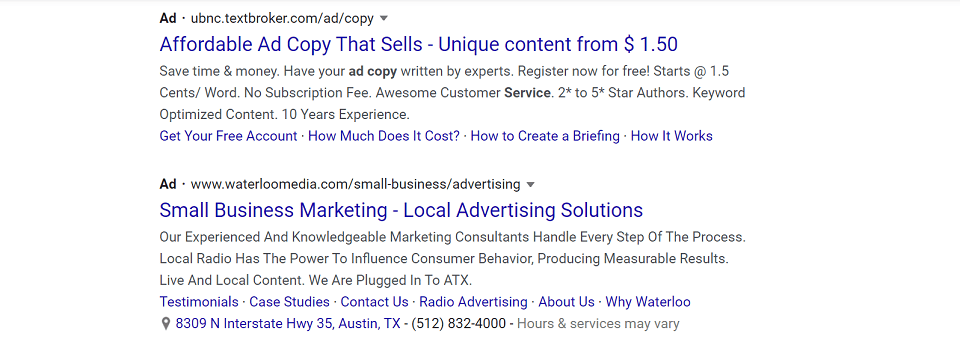Being levied with a Google penalty is the nightmare of pretty much every single website owner and developer. Considering that most people look online for what they need through their search engine, it is mandatory to be in the good graces of all search engines, particularly Google.
If you fail on this matter, your pages and posts will be ranked in lower positions. Or your website might not even show up where people look anymore.
And you know the consequences of losing ranking: less traffic and fewer conversions for your website and business.
To avoid getting into this situation, you need to ensure that you do everything in your power to avoid a dreaded Google penalty.
On this quest, information is all that you need – because, quite often, people get into trouble just based on what they do not know.
So, without any further delay, here are my tips on how to set up your website to avoid such a penalty.
Work on Your Link Building
Link building is a great technique to get more visitors and improve your ranking on search engines.
It allows you to get referrals pointing to your website or blog, increasing your audience by letting more people know about you, driving up your domain authority, and improving your positioning in the SERPs.
But, as everything in life, there is a right way and a wrong way to do it.
It is great when a website links back to your own domain. But it only matters if it is a high-quality, relevant, and authoritative website.
Meaning, websites with a great reputation and properly enlisted.
So if you just buy links or post on other websites by yourself, it typically won’t enhance your own domain authority – and if you get caught, you will almost assuredly subject your website to a Google penalty.
Work on Your Design
The way that your website looks also matters to users and Google alike. And we aren’t talking about beauty here. Google’s search ranking algorithm can understand much effort you have put on making our website user-friendly and easy to navigate.
It is all about the visitors (i.e. users) and how they experience your website.
If they are happy with your page load speed, if your visual resources add value to your content, and if they can find what they want without much effort, you are good to go.
If you don’t, Google will think that you don’t care, and it could negatively impact your ranking.
So make sure that you put some money and time trying to improve the design of your website. It will also increase your conversions, as an ugly website doesn’t really create much engagement, as we all know.
Improve Your Content
Great content is the heart and soul of your website. “Content is king” has been repeated so often that you probably are tired of hearing it. But it is an indisputable truth.
Of course, Google won’t penalize you for being a bad writer – even though you still should try to avoid writing mistakes. But you certainly won’t be ranking well with sloppy content.
And if you decide to be even lazier than that, things will get even more complicated.
Some people think that it is OK to copy some else’s content – or just rewrite it, as they say. But Google is serious about penalizing plagiarism, and they have become exceptionally adept at identifying it.
So don’t even try to “borrow” or steal content.
Take Care of the Details
Sometimes, overlooking the details is what gets you in trouble. Let’s say you take good care of the big picture but then get penalized because of a small thing that passed unnoticed.
404 errors pages create plenty of complication, for instance. It disrupts your navigation, and if you leave them there for long, it makes Google think that you don’t care about your website.
So take action as soon as you find out about them. Redirect 404 errors to real pages on your website.
Avoid Keyword Stuffing
Keyword stuffing used to be one of the most common SEO best practices. And now it is something to avoid at all costs.
Keyword stuffing, the practice of adding keywords everywhere with or without proper reason, is a surefire way to open yourself up to a Google Penalty, under their Google Panda algorithm updates.
Not that you shouldn’t add keywords anymore. They are still used to optimize your content for what people are searching online.
But they should be added naturally within your content, rather than overdoing it and repeating the same keyword as many times as possible.
And also, forget about calculating their optimal density and so. It doesn’t matter anymore. Keep the content natural in tone and you’ll do fine.
Address Any Broken Links
It might not get you into much trouble, but why not avoid one more issue? Broken links on your website indicate that you aren’t checking your content often enough.
This is a problem, because Google likes fresh, updated pages.
So, from time to time, check for any broken links on your Google Search Console. If you see any, fix them immediately. It will keep your records clean with very little effort.
Optimize Your Anchor Texts on Internal Links
Your anchor text, the text inside of your link, is as important as the link itself. It is how your visitors know what they will get when the click on it, so it plays a decisive role in their decision.
Plus, if other websites start pointing to your website using the same anchor text, it helps the algorithm understand what you are talking about – which increases your chances to rank better.
But, don’t try to trick Google Search by creating content and posting away with the anchor text you want to get noticed.
As it is almost impossible that everyone will be using exactly the same words all the time, you will get caught very quickly – and penalized for that.
[EDITOR’S NOTE: This is a core component of Google’s Penguin penalty, which targeted shady backlinking practices.]
Final Piece of Advice: Never Try to Game the System
The final piece of advice here sounds obvious, but it still is very relevant. If you want to rank well and see more traffic from search engines, don’t try to game the system.
Even if you think that you can outsmart them, rest assured that you can’t.
And if you think you have been able to do it, so you can continue on this path, you will soon find out that your luck won’t last long.
With millions of pages to index, Google Search’s algorithm might take a while to catch what you are doing, but it will.
So make the most of any SEO best practices that you can find. They might bring results at a slow pace, but once you get there, they will be steady and long-term.
Featured Image Credit: Literalis. CC 0; Public Domain. View original image on Flickr here.
Disclaimer: The views and opinions stated in this post are that of the author, and Return On Now may or may not agree with any or all of the commentary.
Janet Anthony
Latest posts by Janet Anthony (see all)
- How to Search Engine Optimize (#SEO) Your Blog Content - February 28, 2017
- How to Protect your Website from a Google Penalty - January 11, 2017
- 6 Tools To Improve Your Content Writing Skills - December 13, 2016





